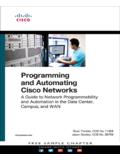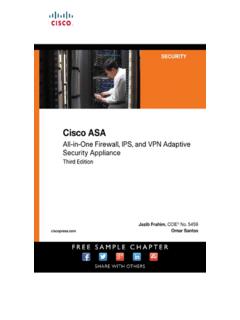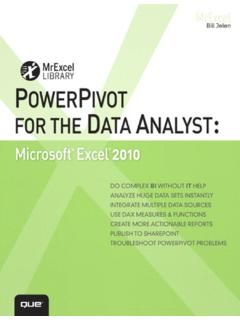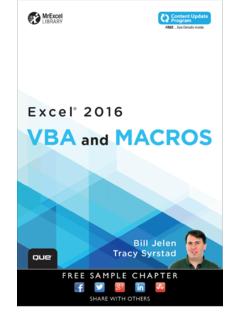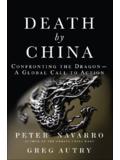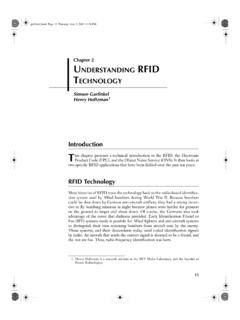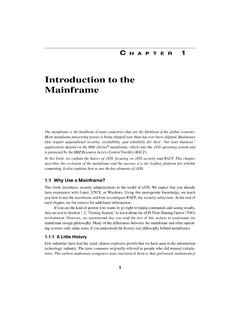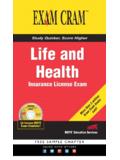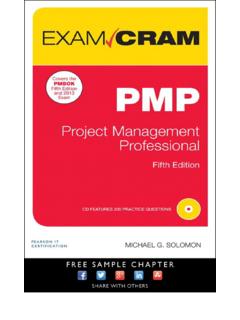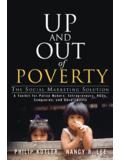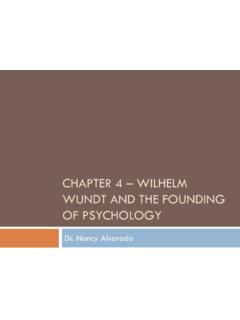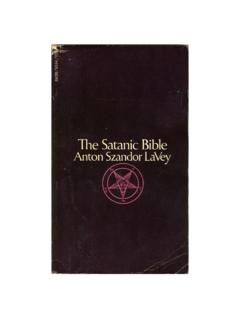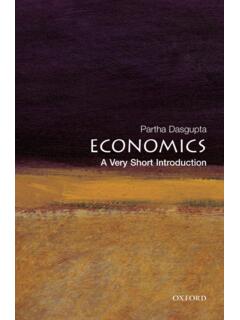Transcription of Experiential Learning: Experience as the Source of ...
1 Experiential learning Experience as the Source of learning and Development Second Edition 1 11/13/14 5:06 PM. This page intentionally left blank Experiential learning Experience as the Source of learning and Development Second Edition David A. Kolb Experience Based learning Systems, Inc. 3 11/13/14 5:07 PM. Editor-in-Chief: Amy Neidlinger Executive Editor: Jeanne Glasser Levine Operations Specialist: Jodi Kemper Cover Designer: Chuti Prasertsith Managing Editor: Kristy Hart Project Editor: AndyBeaster Copy Editor: Crystal Bullen Proofreader: Audrey Jacobs Indexer: Margaret Hentz Compositor: codeMantra Manufacturing Buyer: Dan Uhrig 2015 by Pearson Education, Inc.
2 Upper Saddle River, New Jersey 07458. For information about buying this title in bulk quantities, or for special sales opportunities (which may include electronic versions; custom cover designs; and content particular to your business, training goals, marketing focus, or branding interests), please contact our corporate sales department at or (800) 382-3419. For government sales inquiries, please contact For questions about sales outside the , please contact Company and product names mentioned herein are the trademarks or registered trademarks of their respective owners. All rights reserved. No part of this book may be reproduced, in any form or by any means, without permission in writing from the publisher.
3 Printed in the United States of America First Printing December 2014. ISBN-10: 0-13-389240-9. ISBN-13: 978-0-13-389240-6. Pearson Education LTD. Pearson Education Australia PTY, Limited. Pearson Education Singapore, Pte. Ltd. Pearson Education Asia, Ltd. Pearson Education Canada, Ltd. Pearson Educaci n de Mexico, de Pearson Education Japan Pearson Education Malaysia, Pte. Ltd. Library of Congress Control Number: 2014952293. 4 11/13/14 5:06 PM. For Alice 5 11/12/14 12:59 PM. This page intentionally left blank Contents Foreword.. x About the Author.. xii Preface .. xiii Introduction.. xvi Part I Experience and learning Chapter 1 The Foundations of Contemporary Approaches to Experiential learning .
4 1. Experiential learning in Higher Education: The Legacy of John Dewey .. 4. Experiential learning in Training and Organization Development: The Contributions of Kurt Lewin .. 8. Jean Piaget and the Cognitive-Development Tradition of Experiential learning .. 12. Other Contributions to Experiential learning Theory .. 15. Update and Reflections .. 19. Foundational Scholars of Experiential learning Theory .. 19. Liminal Scholars .. 20. Contributions to Experiential learning .. 23. Chapter 2 The Process of Experiential learning .. 31. Three Models of the Experiential learning Process .. 32. Characteristics of Experiential learning .
5 37. Summary: A Definition of learning .. 49. Update and Reflections .. 50. The learning Cycle and the learning Spiral .. 50. Understanding the learning Cycle .. 50. The learning Spiral .. 61. 7 11/12/14 12:59 PM. Part II The Structure of learning and Knowledge Chapter 3 Structural Foundations of the learning Process .. 65. Process and Structure in Experiential learning .. 66. The Prehension Dimension-Apprehension Versus Comprehension .. 69. The Transformation Dimension-Intention and Extension .. 77. Summary .. 85. Update and Reflections .. 87. Experiential learning and the Brain .. 87. james Zull and the Link between the learning Cycle and Brain Functioning.
6 88. My Brain Made Me Do It? .. 94. Chapter 4 Individuality in learning and the Concept of learning Styles .. 97. The Scientific Study of Individuality .. 98. learning Styles as Possibility-Processing Structures .. 100. Assessing Individual learning Styles: The learning Style Inventory .. 104. Evidence for the Structure of learning .. 111. Characteristics of the Basic learning Styles .. 114. Summary and Conclusion .. 135. Update and Reflections .. 137. Individuality, the Self, and learning Style .. 137. Western and Eastern Views of the Self .. 138. Experiential learning and the Self .. 139. learning Style .. 141. Chapter 5 The Structure of Knowledge.
7 153. Apprehension vs. Comprehension A Dual-Knowledge Theory .. 154. The Dialectics of Apprehension and Comprehension .. 159. The Structure of Social Knowledge: World Hypotheses .. 164. Summary .. 173. Social Knowledge as Living Systems of Inquiry The Relation between the Structure of Knowledge and Fields of Inquiry and Endeavor .. 175. Update and Reflections .. 186. The Spiral of Knowledge Creation .. 186. Personal Characteristics and Ways of Knowing .. 188. Knowledge Structures and Disciplinary learning Spaces .. 190. The knowledge Structures of Experiential learning .. 192. viii Contents 8 11/12/14 12:59 PM. Part III learning and Development Chapter 6 The Experiential learning Theory of Development.
8 197. learning and Development as Transactions between Person and Environment . 198. Differentiation and Integration in Development .. 199. Unilinear vs. Multilinear Development .. 201. The Experiential learning Theory of Development .. 205. Consciousness, learning , and Development .. 210. Adaptation, Consciousness, and Development .. 216. Update and Reflections .. 225. Culture and Context .. 226. Individual Differences and Multilinear Development .. 227. Integration and Advanced Stages of Adult Development .. 228. Implications for Experiential learning Theory Development Theory .. 234. Chapter 7 learning and Development in Higher Education.
9 239. Specialized Development and the Process of Accentuation .. 242. Undergraduate Student Development in a Technological University .. 244. Professional Education and Career Adaptation .. 261. A Comparative Study of Professional Education in Social Work and Engineering . 263. Managing the learning Process .. 276. Implications for Higher Education .. 283. Update and Reflections .. 287. Becoming an Experiential Educator .. 287. Chapter 8 Lifelong learning and Integrative Development .. 311. Adaptive Flexibility and Integrative Development .. 315. On Integrity and Integrative Knowledge .. 327. Update and Reflections .. 333.
10 Lifelong learning and the learning Way .. 333. Bibliography .. 355. Index .. 377. Contents ix . 9 11/12/14 12:59 PM. Foreword Foreword to the First Edition T. his is a very special and important book. I say that at the outset because the book is written with such grace and gentleness, with such clarity and directness, that you will know that David Kolb has written an excellent treatise on learning theory, certainly for educators and quite possibly for Educated Persons, whatever that means. But as you read on as I read on, I had to catch my breath every once in a while, wondering if the velocity of my excitement would ever cease.
